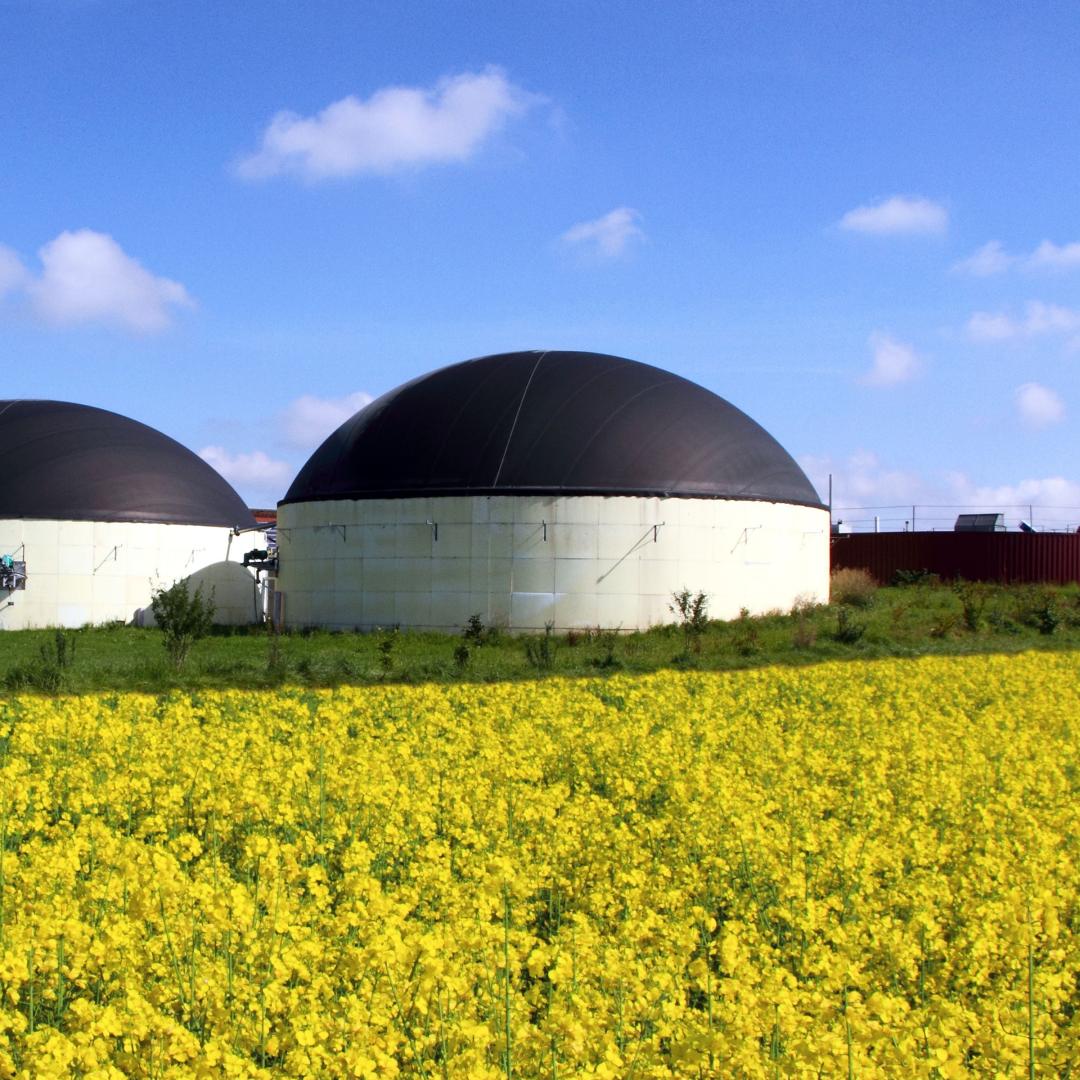What is it?
Methane digesters are specialized devices that utilize anaerobic digestion to convert agricultural, industrial, or municipal organic waste into useful products, such as biogas and digestate, in a controlled environment. Using methane digesters to treat organic waste reduces emissions by capturing methane that would have otherwise been released during uncontrolled anaerobic decomposition in landfills, manure lagoons, or other waste facilities. Methane digester-produced biogas, which is roughly 50% methane and 50% CO₂,
along with some trace gases, can be used directly as a fuel or refined further into biomethane to replace natural gas use for heat, electricity, transportation, or industrial processes. Biogas can potentially reduce emissions from electricity or heat generation if it is used to replace a more emissions-intensive fuel. Biomethane, also called renewable natural gas, can be used as a drop-in replacement anywhere natural gas is used, such as in industrial processes.
Does it work?
The effectiveness of methane digesters for reducing emissions varies depending on the type of feedstock used and the amount of methane that leaks from the digester and any associated tanks, valves, and pipes. For manure and municipal organic waste, which often degrade in anaerobic environments and can emit methane directly to the atmosphere, capturing that methane in a methane digester and using the resulting biogas to replace a fossil fuel energy source can result in a net emissions reduction if methane leakage rates are low. In contrast, using agricultural crop residues, which typically degrade aerobically and produce CO₂,
as feedstock for a methane digester may yield little or no reduction in net GHG emissions, largely due to methane leaks. Use of biogas for energy can also reduce emissions if it replaces a more carbon-intensive fuel.
Why are we excited?
Methane digesters have been deployed in many parts of the world at various scales, from household to centralized industrial-scale digesters. They can use a wide variety of organic feedstocks from the agricultural, municipal, and industrial sectors. For municipal organic waste and concentrated livestock manure, methane digesters are more effective at reducing emissions than landfilling or most other manure management strategies. The biogas produced can be stored and used for on-site energy needs or as a fuel source for dispatchable electricity that supports intermittent clean energy options such as solar and wind generation. It can also be sold to provide additional sources of revenue for farmers or waste disposal facilities. The use of methane digesters can reduce noxious odors from waste, and the digestate can be used as material for animal bedding or fertilizer, reducing demand for synthetic fertilizers.
Why are we concerned?
The most serious problem with methane digesters is that they are a significant source of methane leaks. Few data are available on leakage rates; however, the International Energy Agency (IEA) reports that methane leakage from biogas production can range from 0% to 12%, which is significantly higher than the average global methane leakage rate for oil and gas production of 1.2% in 2024. Over a 20-year time frame, methane is more than 80 times more potent than CO₂
at trapping heat in the atmosphere. Therefore, using methane digesters to process waste material that would otherwise degrade aerobically in order to produce methane-rich biogas could, due to high methane leakage rates, have an even greater warming impact than if the waste were left alone. The collection, transportation, and processing of feedstocks and the operation of the methane digesters also produce GHG emissions from fuel use.
Methane digesters have a high capital cost and are more expensive than other forms of manure methane abatement, such as covers, physical treatments, or chemical treatments. Financial support from governments can help with the upfront installation costs, while low-cost feedstocks and expensive conventional fuel prices could help create an environment where biogas production is economically viable. However, these economic incentives may encourage poor farming practices or increased waste production. For example, dairy farmers may consider increasing their herd size to capitalize on revenues from the outputs of methane digesters, an outcome that would increase total methane emissions from agriculture. There are also health and safety concerns, as there have been instances of digester explosions and leaks that have injured people or harmed the environment.

